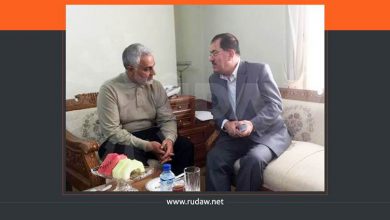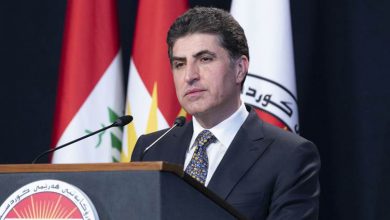Turkey is openly disgruntled over the US-backed effort to unite disparate Syrian Kurdish rival political factions that kicked off last month.
Turkish disgruntlement was palpable in a May 11 dispatch in Turkey’s state-run Anadolu news agency. It characterized the effort to unite disparate Syrian Kurdish factions as more of a conspiracy aimed at creating “international representation space” for the “terrorist organization in northern Syria.”
It also accused France, the aspiring mentor of “this axis of malice” of “intentions to establish a state of terror in Syria,” ostensibly over its involvement in the Syrian Kurdish peace talks.

Turkey views the consolidation of Kurdish gains in northern Syria as an existential threat that encourage its own more than 14 million Kurds to break away. “Kurdish rights are like the sea level rising. When they rise in one place, they rise everywhere,” said Giran Ozcan, the Washington representative of the Kurdish-friendly People’s Democratic Party HDP, the third largest grouping in the Turkish parliament.
The timing of these peace talks is no coincidence. Mazloum Kobane (SDF general) reached out to the ENKS shortly after Turkey’s Oct. 9 invasion of a large swath of SDF-controlled territory between the towns of Tell Abyad and Ras al-Ain. The operation, rendered possible by President Donald Trump’s decision to withdraw US troops from the area following a telephone call with Erdogan, came as a huge shock to the Kurds.
A deal with the KNC and other Syrian Kurdish parties would weaken Turkey’s argument that the autonomous administration is a “PKK terror state.” Optimally it would end Turkey’s objections to the US-SDF partnership, shielding the northeast from further Turkish attacks and preventing the territory rich in oil reserves to be handed back to the country’s legitimate government.

Many believe that chances of a deal are limited, and not just because of Turkey. The PYD would be reluctant, for example, to fold the ENKS’s Roj Peshmerga force into the SDF “because it doesn’t want a competing armed Kurdish force” that could plant the seeds of intra-Kurdish conflict. Likewise, the Roj Peshmerga would be unwilling to place themselves under the SDF’s command.
An added complication has arisen in Iraqi Kurdistan. Tensions between the PKK and the KDP have flared in Zine Werte, a strategic mountain pass in Iraqi Kurdistan that leads to the Qandil Mountains, where the PKK is based. ENKS is known as KDP’s Syrian branch.
The KDP sent in more than 400 of its Peshmerga fighters to Zine Werte last month, saying it was to monitor traffic to prevent the spread of COVID-19 by people traveling to and from Iran. The PKK says the real reason is to help clear the path for a Turkish offensive on Qandil and has called on the KDP to withdraw. When it sent a trio of fighters to relay that message, Turkey killed them in an airstrike.






